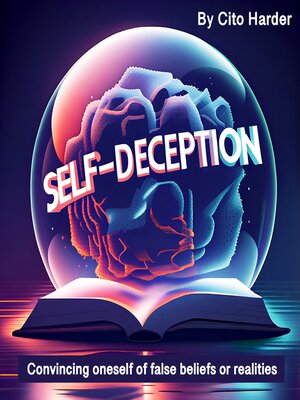Self-Deception
audiobook (Unabridged) ∣ Convincing Oneself of False Beliefs or Realities
By Cito Harder

Sign up to save your library
With an OverDrive account, you can save your favorite libraries for at-a-glance information about availability. Find out more about OverDrive accounts.
Find this title in Libby, the library reading app by OverDrive.



Search for a digital library with this title
Title found at these libraries:
| Library Name | Distance |
|---|---|
| Loading... |
Self-deception is a powerful and often insidious phenomenon that can shape how we perceive ourselves, others, and the world around us. It involves convincing ourselves of beliefs or realities that are not aligned with the truth, often as a way to protect ourselves from uncomfortable emotions, avoid difficult truths, or preserve our self-esteem. At its core, self-deception is the act of lying to oneself, whether consciously or unconsciously, to maintain a sense of control or to escape the anxiety of confronting an inconvenient reality. While self-deception can sometimes serve as a coping mechanism, allowing individuals to navigate challenging situations, it can also hinder personal growth, distort perceptions, and perpetuate harmful patterns of behavior.
One of the fundamental aspects of self-deception is the mind's tendency to block out or distort information that conflicts with pre-existing beliefs or desires. This selective perception allows individuals to continue functioning within a comforting narrative, even when confronted with evidence to the contrary. For example, someone who has been in an unhealthy relationship may deceive themselves into believing that their partner's behavior will improve, despite ongoing patterns of manipulation or abuse. By doing so, they protect themselves from the painful reality that the relationship may need to end. In this way, self-deception serves as a defense mechanism, cushioning the individual from emotional distress and the threat of change.
At the same time, self-deception can prevent growth and self-awareness. When we deceive ourselves, we close ourselves off to learning, adaptation, and personal development. We may be less likely to take responsibility for our mistakes or face difficult truths about our own behavior.







